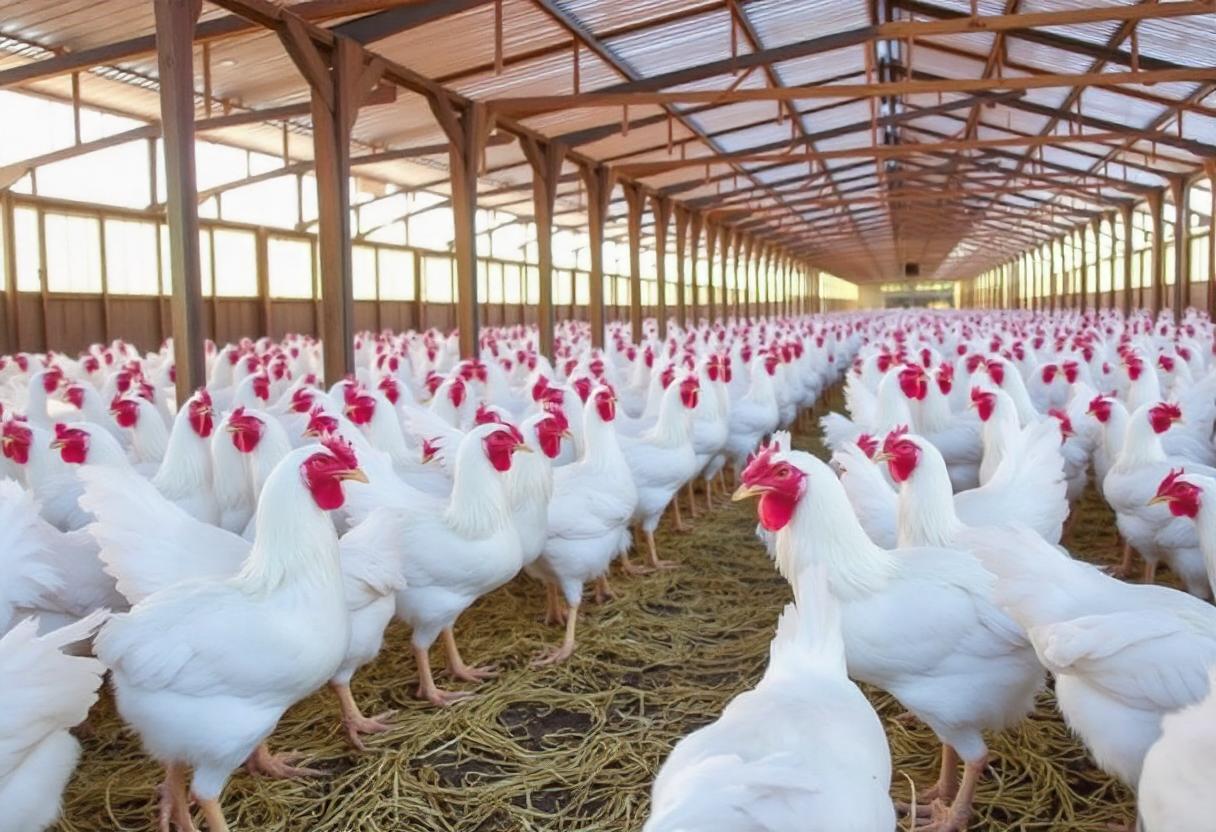
Poultry farming is a significant component of Canada’s agricultural sector, providing essential protein sources to consumers and contributing substantially to the nation’s economy. The industry encompasses various forms of poultry production, including broiler chickens, turkeys, ducks, and eggs. This article delves into the state of poultry farming in Canada, job opportunities within the sector, and the skills and qualifications needed for a career in this dynamic field.
Overview of Poultry Farming in Canada
Poultry farming in Canada is a well-established industry with a robust infrastructure that supports production, processing, and distribution. The country is one of the top producers of poultry meat and eggs globally, with major poultry farming operations located across several provinces. Key regions for poultry farming include:
- Ontario: Home to a significant portion of Canada’s poultry farms, Ontario’s favorable climate and proximity to major urban centers make it a leading producer of broiler chickens and turkeys.
- Quebec: Another major player in the poultry industry, Quebec is known for its egg production and broiler farming.
- British Columbia: In BC, poultry farming is focused on broiler chickens and turkeys, benefiting from the province’s diverse agricultural environment.
- Alberta and Saskatchewan: These Prairie Provinces contribute to the poultry sector with both broiler and turkey production, leveraging their extensive agricultural infrastructure.
The Canadian poultry industry is characterized by its commitment to high standards of animal welfare, biosecurity, and food safety. The industry operates under stringent regulations to ensure the health and well-being of poultry, as well as the quality of the products reaching consumers.
Job Opportunities in Poultry Farming
Poultry farming offers a wide range of job opportunities, from hands-on roles in production to positions in management, processing, and support services. Some of the key job roles in the poultry industry include:
1. Farm Workers and Technicians
- Responsibilities: Farm workers and technicians are involved in the day-to-day care of poultry, including feeding, watering, cleaning, and monitoring the health of the birds. They may also assist with egg collection and the maintenance of farm equipment.
- Skills and Qualifications: Typically, a high school diploma or equivalent is required. On-the-job training is often provided, but prior experience in agriculture or animal husbandry can be advantageous.
2. Poultry Farm Managers
- Responsibilities: Farm managers oversee the overall operation of poultry farms, including managing staff, coordinating production schedules, and ensuring compliance with health and safety regulations. They are also responsible for budgeting, record-keeping, and implementing best practices.
- Skills and Qualifications: A degree in agriculture, animal science, or a related field is often preferred. Strong organizational and leadership skills, along with experience in poultry farming, are essential.
3. Processing Plant Workers
- Responsibilities: Processing plant workers are involved in the handling, processing, and packaging of poultry products. This includes tasks such as slaughtering, plucking, cutting, and packaging. Adherence to food safety standards is critical in this role.
- Skills and Qualifications: Training is typically provided on-site, but prior experience in food processing or a similar field can be beneficial. Attention to detail and the ability to work in a fast-paced environment are important.
4. Veterinarians and Animal Health Specialists
- Responsibilities: Veterinarians and animal health specialists are responsible for diagnosing and treating illnesses, managing herd health programs, and ensuring compliance with veterinary regulations. They play a crucial role in maintaining the health and productivity of poultry.
- Skills and Qualifications: A degree in veterinary medicine and relevant licensing are required. Specialized training in poultry health and production is often necessary.
5. Sales and Marketing Professionals
- Responsibilities: Sales and marketing professionals in the poultry industry focus on promoting poultry products, developing market strategies, and building relationships with customers and distributors. They may also conduct market research and analyze consumer trends.
- Skills and Qualifications: A background in marketing, business, or agriculture is beneficial. Strong communication skills and an understanding of the poultry market are important.
Skills and Qualifications for Poultry Farming Jobs
The skills and qualifications required for jobs in poultry farming vary depending on the role. However, some common attributes across the sector include:
- Technical Skills: Knowledge of poultry husbandry, biosecurity measures, and equipment operation is important for many roles in poultry farming.
- Attention to Detail: Ensuring the health and quality of poultry products requires careful monitoring and adherence to standards.
- Physical Stamina: Many positions, especially those on the farm or in processing plants, require physical strength and endurance.
- Problem-Solving Skills: The ability to address issues related to animal health, production efficiency, and operational challenges is valuable.
Career Prospects and Growth
The poultry farming sector in Canada offers stable career prospects, with opportunities for growth and advancement. As the industry continues to evolve, there is increasing demand for skilled professionals who can contribute to innovation, sustainability, and efficiency in poultry production.
With advancements in technology, such as automation and data analytics, the industry is likely to see continued growth and transformation, creating new job opportunities and requiring a skilled workforce. Additionally, the emphasis on sustainable practices and animal welfare will drive demand for professionals who can support these initiatives.
Poultry farming in Canada is a vital and dynamic sector that provides numerous job opportunities across various roles. From hands-on farm work to management and specialized positions, the industry offers diverse career paths for those interested in agriculture. With a focus on innovation, sustainability, and high standards of animal care, the poultry sector continues to be a significant contributor to Canada’s economy and food supply.